Timeline
Explore the historical context for A Community in Conflict.
1700s
-
1700
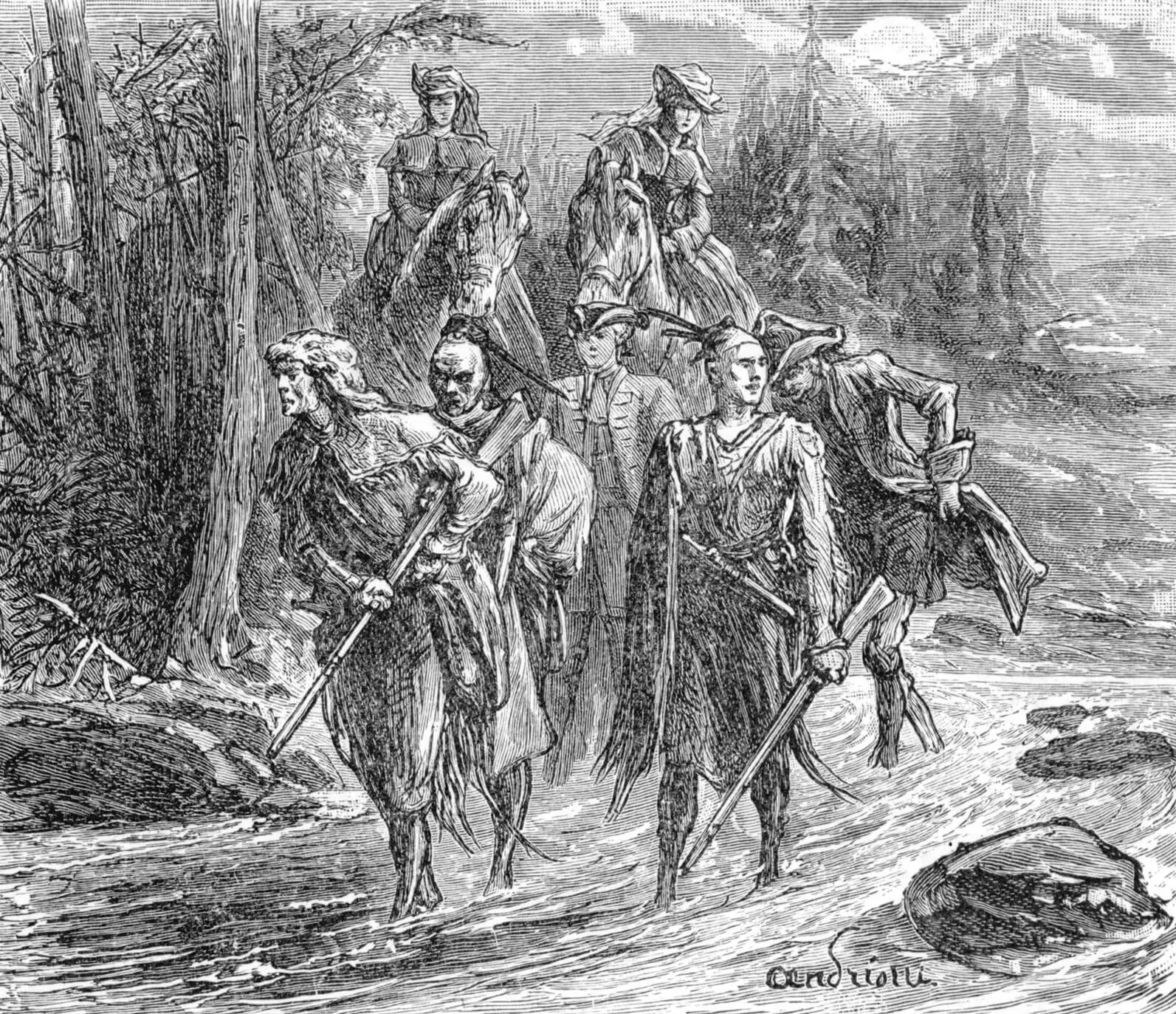 View 1730 in the exhibit
View 1730 in the exhibitFrench hunters push westward into the American frontier hunting and trapping furs for trade in Europe.
-
1763
Having lost the French and Indian War, France is forced to relinquish North American land to the British Empire.
-
1775
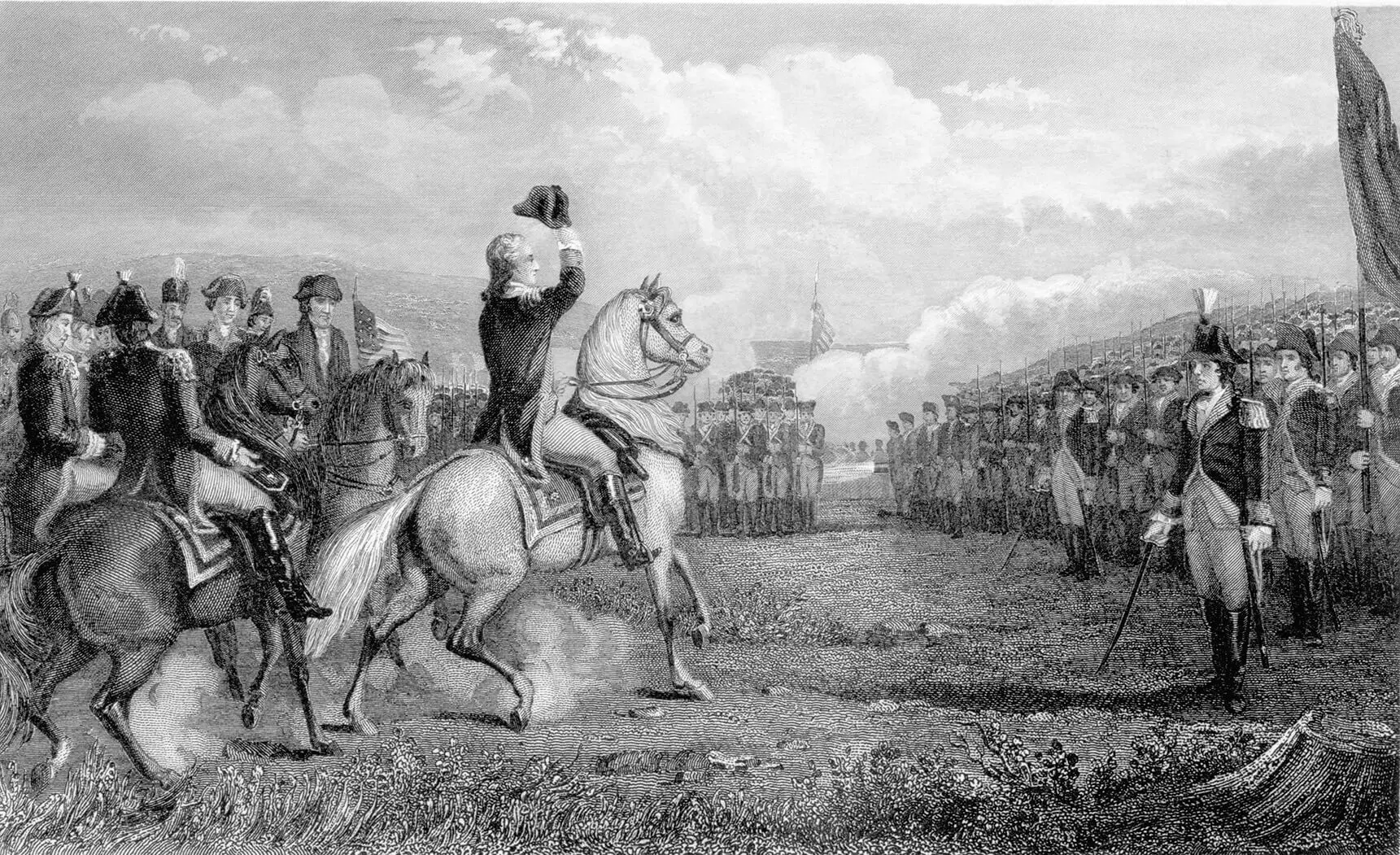
The American War for Independence begins.
-
1780s
The Kickapoo migrate west from their homelands in Michigan and Ohio to avoid westward migrating Iroquois who are moving west as more Europeans settle the east.
-
1783
The United States wins the Revolutionary War and its independence from England. The Fugitive Slave Act granting slaveholders the right to recover an escaped slave is passed in Congress.
-
1791
The Bill of Rights is ratified by the U.S. Congress.
1800 - 1850
-
1804
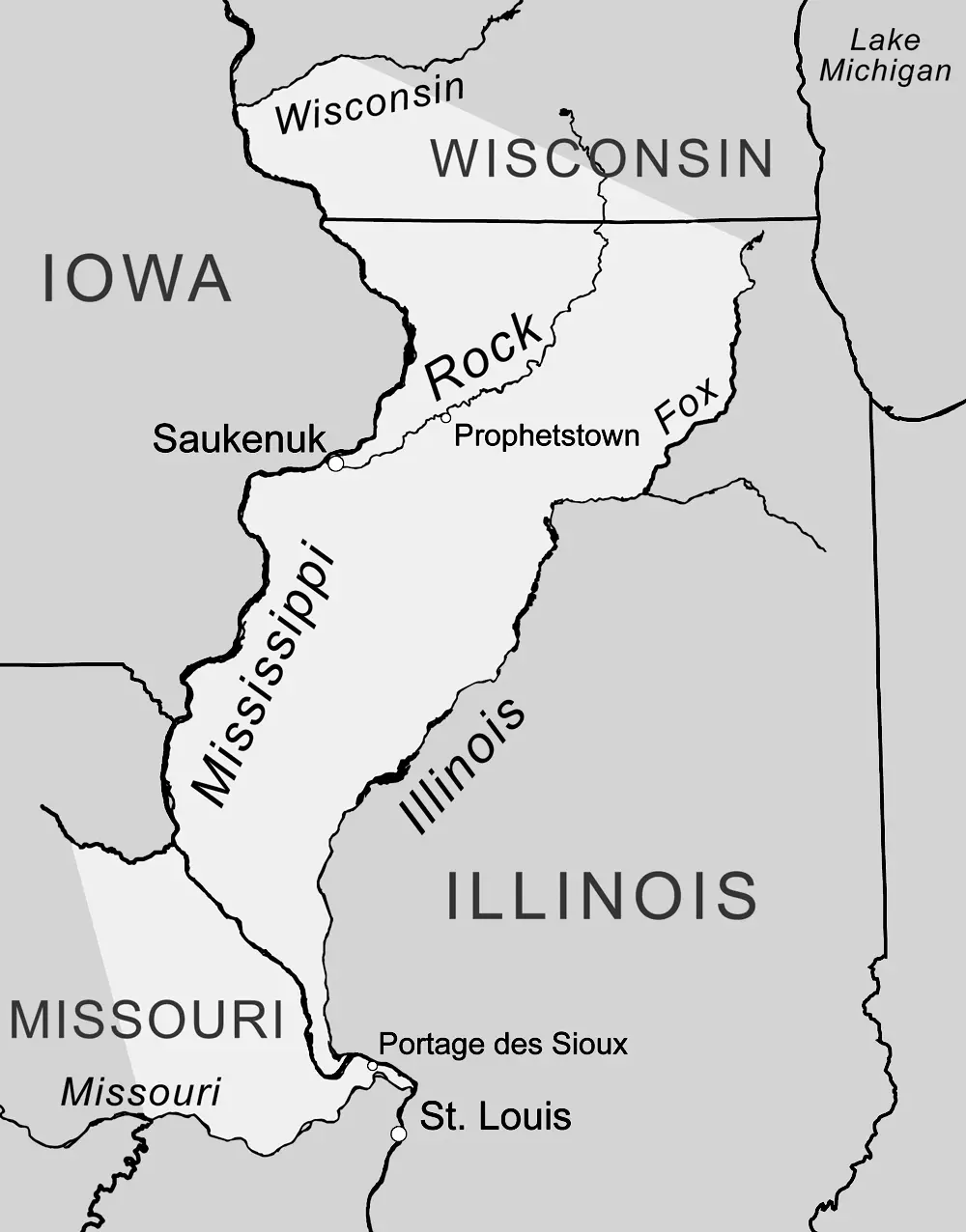
The Sauk and Meskwaki cede their lands to the U.S. government. The treaty includes most of the land northwest of the Illinois River, as well as a large section of what would later become Southern Wisconsin and Eastern Missouri.
At the time these lands were part of the Northwest Territory
-
1807
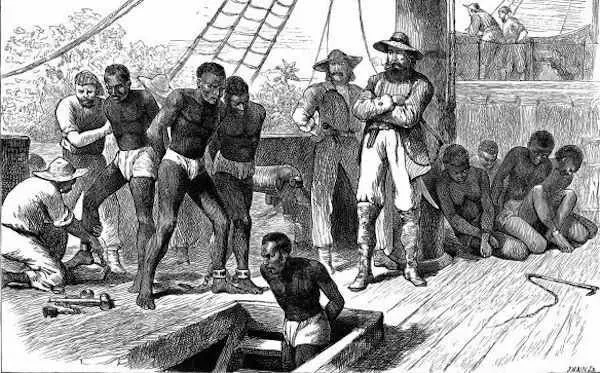
The U.S. outlaws the importation of slaves, but slaves continue to be smuggled into the U.S.
-
1809
The Illinois Territory is created.
-
1818
View 1818 in the exhibitThe State of Illinois is established.
Illinois’ first General Assembly passes measures, called Black Codes, designed to discourage Blacks from settling in Illinois, and denying them the rights granted free white men.
-
1820
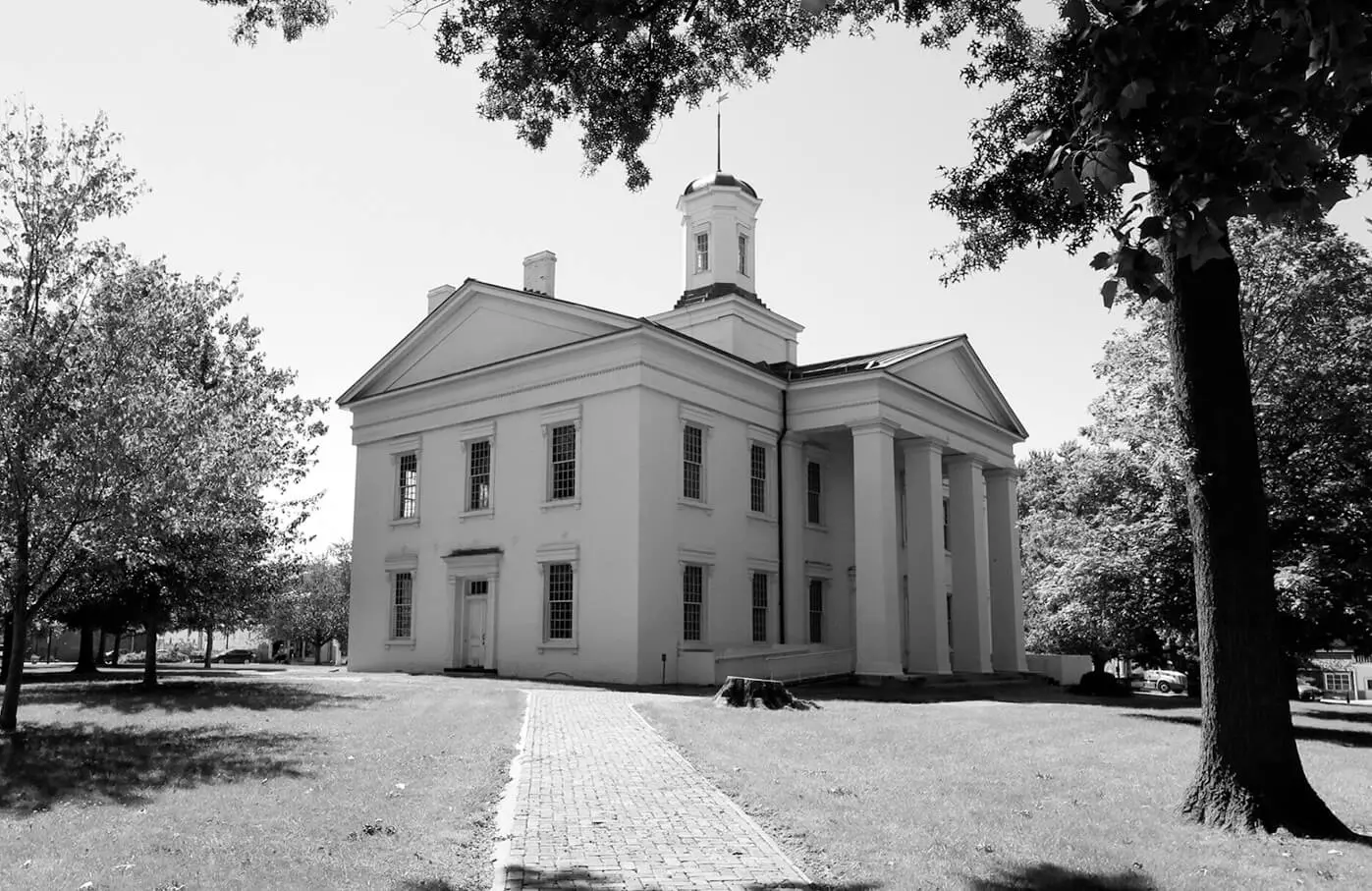
Vandalia becomes the new state capital of Illinois, as Kaskaskia is swallowed up by the changing course of the Mississippi River.
-
1829
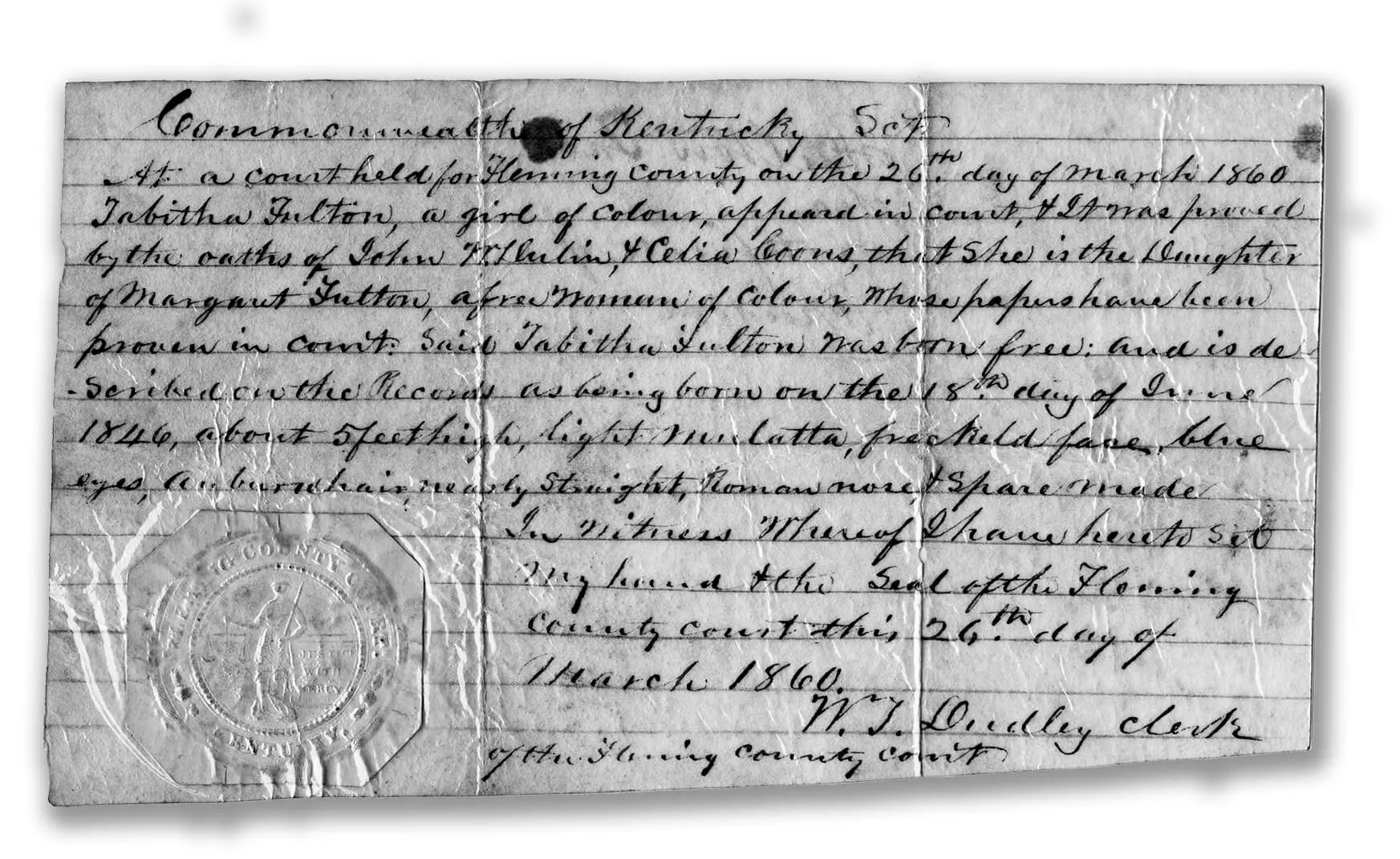
Illinois law requires “free Blacks” to register their certificates of freedom in their county seat and post a $1,000 bond to cover costs should they become indigent or violate state or local laws.
-
1830
The Indian Removal Act is established by Congress. It authorizes the president to negotiate with native tribes with the intent to remove them from their land to Federal territory west of the Mississippi River.
On December 25 McLean County is established, with Bloomington as its county seat.
-
1837
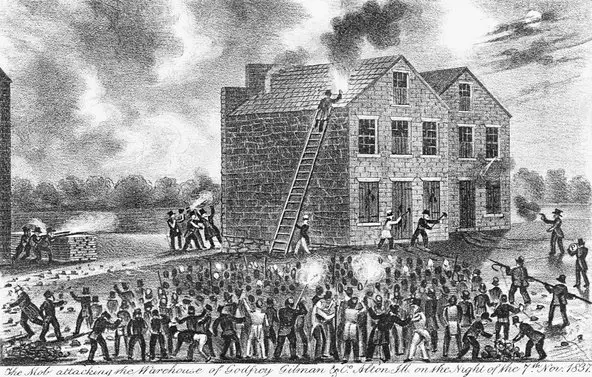
Elijah Lovejoy, a noted abolitionist, is fatally shot by a pro-slavery mob while defending the shop where he prints the Alton Observer, an abolitionist newspaper. Hailed as a martyr to the abolition cause, his brother Owen succeeds him as the leader of Illinois abolitionists.
That same year Illinois’ state capital is moved from Vandalia to the more central location of Springfield.
-
1840
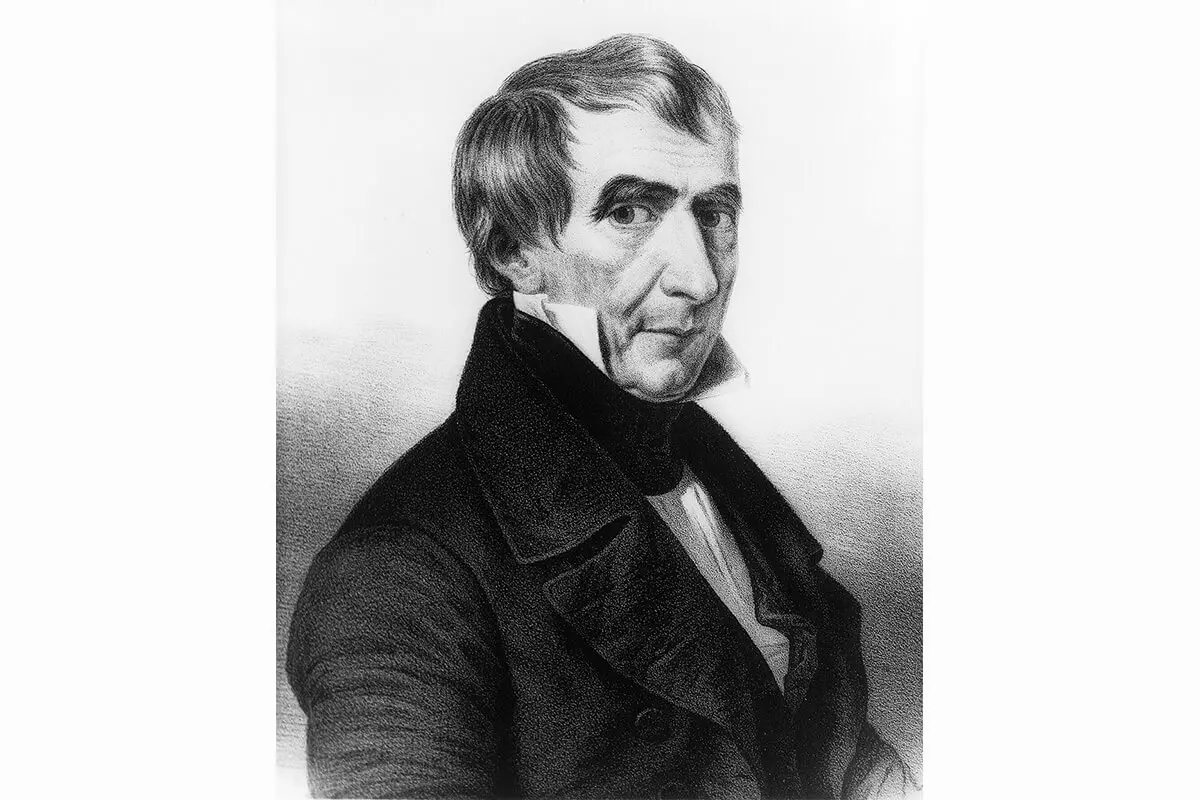
William Henry Harrison is elected President of the United States. He dies of pneumonia thirty-one days into his term, thereby serving the shortest tenure in U. S. presidential history.
-
1845
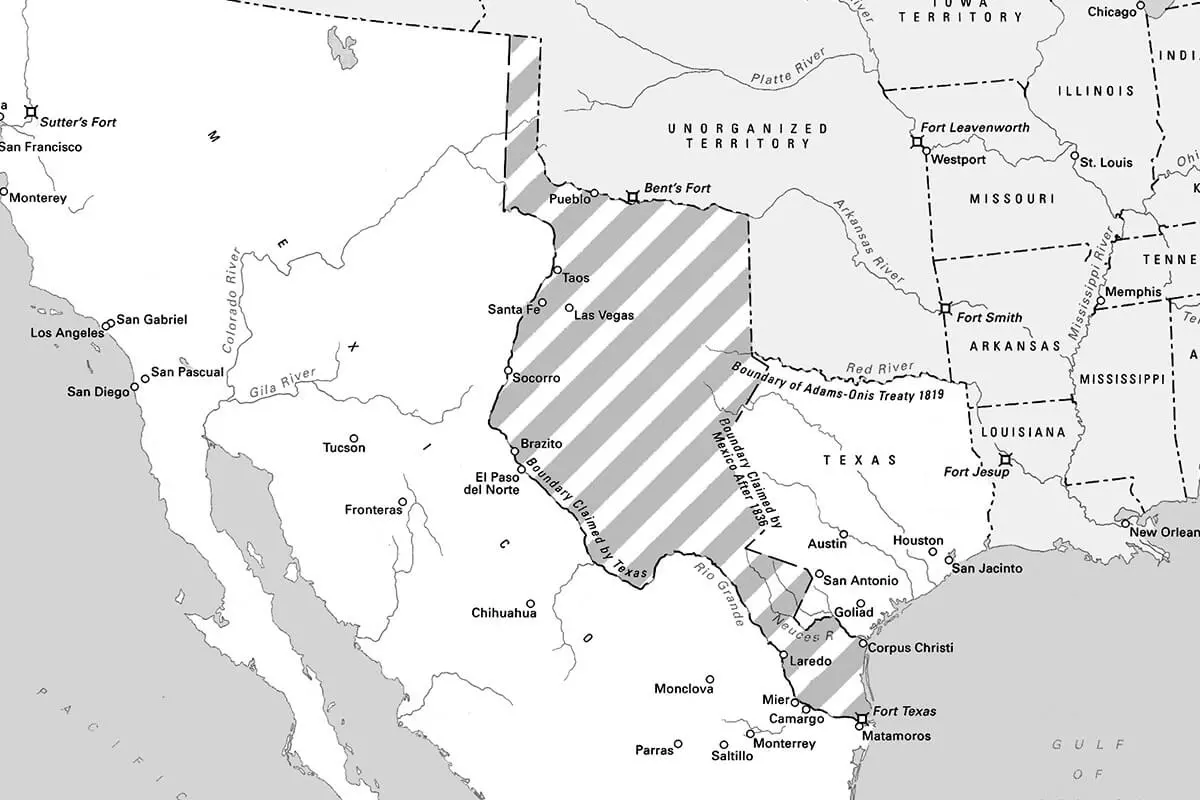
The Know Nothing political party forms as an outgrowth of anti-immigrant and anti-Roman Catholic sentiment. The party flourishes until 1856, when it joins with the Whigs to create the Republican Party.
On December 29 the United States annexes the Republic of Texas as the 28th state.
-
1846
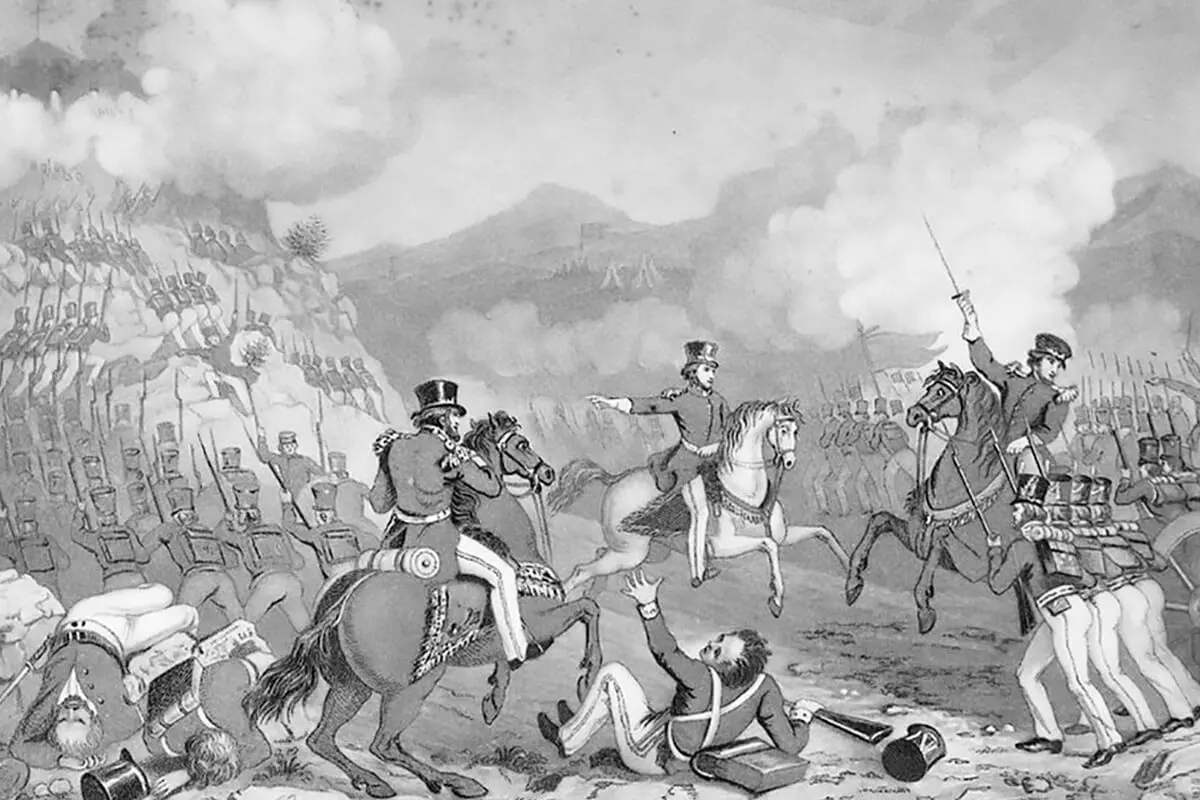
Mexico goes to war against the United States in response to the U.S. annexation of Texas.
-
1848
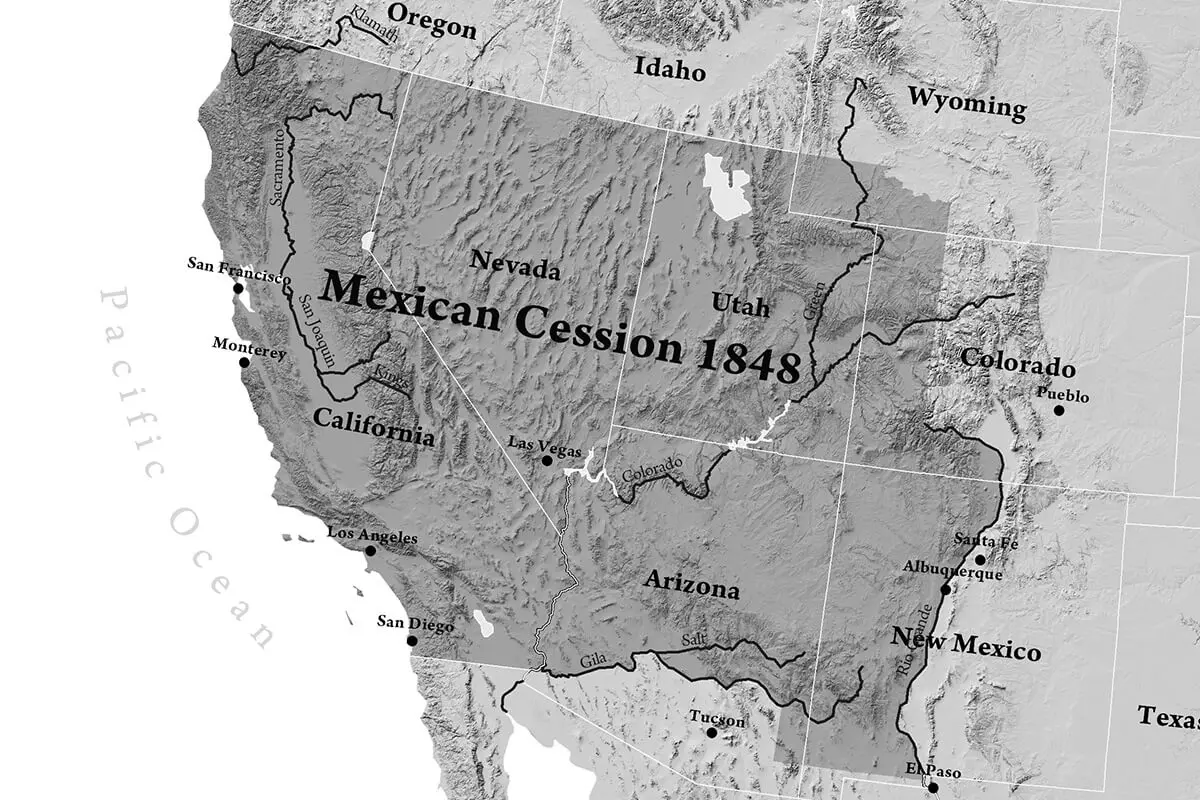
The Mexican-American War ends, resulting in the annexation of 525,000 square miles into the U. S. western territory, including all or parts of present-day Arizona, California, Colorado, Nevada, New Mexico, Utah, and Wyoming.
The discovery of gold in the Sierra Nevada mountains begins the California Gold Rush.
-
1850
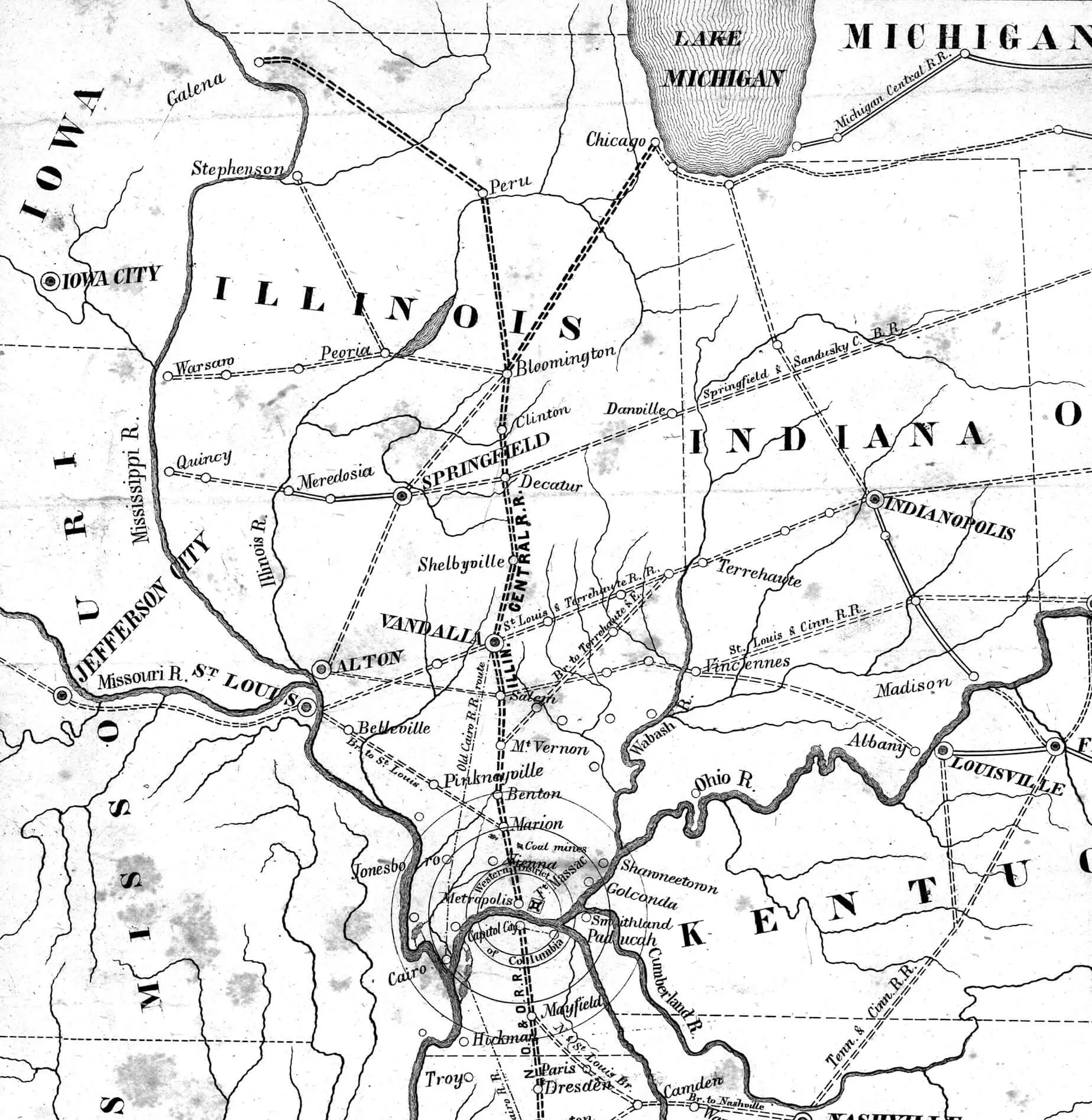 View 1850 in the exhibit
View 1850 in the exhibitThe Illinois legislature approves construction of the Illinois Central Railroad.
1850 - 1870
-
1853
The Illinois Central and the Chicago and Alton Railroads arrive in Bloomington, and the Chicago and Alton Railroad shops are established on the city’s west side.
-
1854
The Kansas-Nebraska act is passed in Congress, effectively repealing the Missouri Compromise. Designed to lessen tensions over slavery, settlers to the two territories are to determine whether slavery will or will not exist there.
-
1855
View 1855 in the exhibitThe inevitable violence between pro- and anti- slavery settlers in the Kansas Territory begins. Known as “Bleeding Kansas,” the violence soon spreads to the Nebraksa Territory as well.
-
1856
The Illinois Republican party is formed in Bloomington, Illinois, with Abraham Lincoln as the new leader of the state’s anti-slavery movement.
-
1857
Illinois’ first public university, Illinois State Normal University, is established in Normal, Illinois.
-
1860
Abraham Lincoln, an Illinois lawyer and friend to many residents of McLean County, is elected President of the United States.
-
1861
The Civil War begins when Confederate troops attack Fort Sumter in South Carolina.
-
1863
President Lincoln issues the Emancipation Proclamation, declaring "that all persons held as slaves” within the rebellious states “are, and henceforward shall be free."
-
1865
On April 9 General Lee surrenders to General Grant at Apomattox, ending the Civil War. Five days later, on April 14, President Lincoln is assassinated at Ford’s Theater in Washington, D.C. On December 18 Congress passes the 13th Amendment making slavery illegal in all U.S. States. Seven days later in Pulaski, Tennessee, a group of Confederate veterans form the first Ku Klux Klan (KKK). Using intimidation and violence the secret society grows rapidly becoming a vehicle for white southern resistance to reconstruction-era policies meant to establish political and economic equality for Blacks.
-
1869
The National Woman Suffrage Association (NWSA) is organized in New York City, and the American Woman Suffrage Association (AWSA) is organized in Boston.
1870 - 1900
-
1870
The 15th amendment, prohibiting federal and state governments from denying a citizen the right to vote based on “race, color, or previous condition of servitude” is passed in Congress. Black Codes are eliminated from the Illinois Constitution, removing the last legal barrier to Blacks immigrating to Illinois.
-
1871
Congress authorizes President Ulysses S. Grant to declare martial law, impose heavy penalties against terrorist organizations, and use military force to suppress the KKK.
-
1873
A financial crisis, the Panic of 1873, triggers a depression in Europe and North America that lasts until 1879. During that time the New York Stock Exchange closes for 10 days and over 10,000 businesses fail.
-
1874
Illinois makes it illegal for schools to segregate students. The Woman's Christian Temperance Union is formed when individuals from 17 states meet in Cleveland, Ohio.
-
1876
The Battle of Little Big Horn takes place on the Crow Indian reservation in the Montana Territory. The U.S. Army attempts to engage the Lakota, Sioux, and Cheyenne people who have not accepted the signing of the 1868 Treaty of Fort Laramie, and force them onto reservations. Led by Lt. Col. George Armstrong Custer, who grossly underestimates the number of native forces, the 78th Cavalry is annihilated, and Custer is killed.
-
1877
The Compromise of 1877 is brokered in Congress to remove federal troops from “former Confederate states” and end reconstruction. African Americans are soon afterwards disenfranchised by state legislatures in every southern state.
-
1882
The Chinese Exclusion Act, prohibiting the immigration of Chinese laborers, is established. It added to the Page Act of 1875, which banned Chinese women from immigrating to the United States.
-
1883
The U.S. Supreme Court nullifies the KKK Act in the federal case United States v. Harris, stating that the federal government has no right to penalize crimes such as assault and murder — only local governments have the power to penalize these crimes.
-
1886
The American Federation of Labor is founded in Columbus, Ohio.
-
1894
Nearly 4,000 factory employees of the Pullman Company in Chicago began a wildcat strike in response to wage deductions, the company’s excessive water, gas, and home rental rates, and its refusal to allow workers to buy their rental homes. The strike shuts down much of the nation’s freight and passenger service west of Detroit, Michigan, and marks the first time the federal government uses an injunction to break a strike.
-
1898
The Spanish-American War begins in the aftermath of the explosion of the USS Maine in Havana Harbor, Cuba. The war is fought against Spain in Cuba and the Philippines.
1900 - 1920
-
1903
U.S. President William McKinley is assassinated at the Pan-American Exposition in Buffalo, New York while shaking hands with the public.
-
1904
The U.S. signs the Hay–Bunau-Varilla Treaty with Panama, which gives the U.S. permanent control of a 10-mile wide strip of land from Panama’s Atlantic to Pacific coasts for the construction of the Panama Canal. The canal is completed in 1914 at a cost of about $400 million dollars and 5,600 lives.
-
1908
When a mob of about 5,000 white men and women, with the intent to lynch two black men accused of crimes against white women, discover that the detainees have been whisked out of town for their protection, they turn on residents of Springfield’s black neighborhoods. Nine African Americans are murdered (including two lynchings) during the April 14-16 race riots. They also destroy black homes and businesses, causing an estimated $150,000 in damages ($4 million in 2018), as well as a mass exodus of Blacks from the community.
-
1909
The NAACP is organized in New York by W. E. B. Du Bois, Ida Welles- Barnett, Mary White Ovington, William English Walling, and Garrison Villard, as a bi-racial endeavor to advance justice for African Americans .
-
1913
The 16th Amendment authorizes the U.S. government to levy a federal income tax. At the same time, the U.S. Federal Reserve system is established to provide the nation with a safer, more flexible, and more stable financial system, including a centralized bank, monetary reserves, and multi-regional checks.
-
1914
WWI begins when Germany and Austria launch efforts to dominate Europe.
-
1915
A second KKK is secretly organized in Georgia. The reestablished group’s white supremacist ideology targets African Americans, Jews, Catholics, and foreigners, and rapidly expands in the south. By the mid-1920s, national membership is estimated in the millions, including sizable pockets in some northern states. Minority communities in the south find themselves increasingly terrorized by vigilante gangs of hooded, white-robed men.
-
1917
As World War I progresses in Europe, Americans increasingly see Germany as the aggressor. When Germany resumes unrestricted submarine warfare against vessels approaching British waters, it also makes a secret offer to help Mexico regain territories lost in the Mexican–American War. The encoded telegram is intercepted, just as German U-boats start sinking American merchant ships in the North Atlantic. Outraged, President Woodrow Wilson asks Congress for "a war to end all wars." Congress declares war on Germany on April 6. Shortly after the U.S. enters WWI, Congress passes the Espionage Act of 1917. Its intent is to prohibit interference with military operations and recruitment, stop insubordination in the military, and to eliminate support of U. S. enemies during times of war.
-
1918
Congress amends the Espionage Act with the Sedition Act, broadening the range of offenses to include speech and the expression of opinions that cast the government or the war effort in a negative light, or interfere with the sale of government bonds. Soon afterwards objections arise regarding the legality of the Act in relation to freedom of speech.
-
1919
March - The U.S. Supreme Court rules unanimously that the Espionage Act does not violate the freedom of speech of those convicted under its provisions. The case, Schenck v. United States, is the first in a series of cases prosecuted during the War and upheld by the Supreme Court. The 18th Amendment to the Constitution (the Volstead Act) is passed, prohibiting the manufacture, sale, and transportation of liquor. Charles Schenck was a socialist who opposed the war and passed out flyers urging individuals to resist the draft. The Supreme Court ruled that his flyers posed a clear and present danger during war times.
June - Thirty-six booby trapped dynamite-filled bombs are mailed to prominent politicians, government officials, and businessmen by a group of Italian anarchists known as the Galleanists. Most of the bombs are identified before they are delivered. Two are triggered, causing serious harm but no deaths.
A month later the group detonates eight large bombs in eight U.S. cities. A night watchman at one site is killed, but no targeted individuals are harmed. Wartime hyper-nationalism, U.S. concerns over the effects of radical political agitation in American society, and the alleged spread of communism and anarchism in the American labor movement fuel what becomes known as the “Red Scare.”
-
1920
The 19th Amendment to the Constitution, granting women the right to vote in all elections, is passed. The League of Nations is established at the end of World War I. It is the first international peacekeeping organization ever formed. Although U.S. President Woodrow Wilson is an enthusiastic proponent of the League, the United States does not join due to opposition from isolationists in Congress.
1921 to 1941
-
1921
Congress makes its first attempt to regulate immigration by setting admission quotas based on nationality. The Emergency Quota Act allows three percent of the number of foreign-born persons of that nationality present in the U.S. as of the 1910 census to enter the country. Three years later, in 1924, the quota is reduced to two percent based on the 1890 census.
-
1925
40,000 Klansmen march in Washington, D.C., their white-hooded procession filling Pennsylvania Avenue.
-
1927
Charles Lindbergh completes the first solo transatlantic flight in history — reaching Paris, France 33.5 hours after leaving New York.
-
1929
The New York Stock Exchange crashes on October 29, sending the U.S. economy into a depression.
-
1933
The Volstead Act is repealed, ending the increasingly unpopular nationwide prohibition of alcohol brewing, transportation, and consumption. President Franklin D. Roosevelt establishes “New Deal” recovery measures—a series of programs and projects meant to restore prosperity to Americans.
-
1935
President Roosevelt signs the Social Security Act into law. The insurance program is designed to pay retired workers age 65 or older an income after retirement.
-
1938
The Fair Labor Standards Act is passed, setting the first minimum wage in the U.S. at 25 cents per hour.
-
1939
World War II begins when Germany invades Poland.
-
1941
The U. S. enters WWII after Japan bombs Pearl Harbor.
1954 to 1965
-
1954
Linda Brown is at the center of the landmark U.S. Supreme Court case, Brown v. Board of Education of Topeka, in which the Supreme Court rules that state laws establishing separate public schools for black and white students are unconstitutional. The decision legally ends school segregation nationwide.
-
1957
The Civil Rights Act of 1957 signals a growing federal commitment to the cause of civil rights. It empowers federal officials to prosecute individuals who conspire to deny or abridge another citizen's right to vote, and establishes the Civil Rights Commission, to investigate allegations of voter infringement.
-
1960
The Civil Rights Act of 1960 establishes federal inspections of voter registration lists and introduces penalties for anyone who obstructs someone's attempt to register to vote.
-
1963
June 11 - President Kennedy gives a televised speech in which he calls for a new bill giving “all Americans the right to be served in all facilities open to the public.” September 15 - Members of an independent KKK group bomb the 16th Street Baptist Church in Birmingham, Alabama, killing four young girls and injuring many. Outrage over the incident results in a violent clash between protesters and police, and draws national attention to African Americans’ hard-fought, often dangerous, struggle for civil rights. November 22 - President Kennedy is assassinated as he rides in a motorcade through Daley Plaza in Dallas, Texas.
-
1964
Congress passes the Civil Rights Act in an effort to end discrimination based on race, color, religion, or national origin.
-
1965
Under the authority of President Johnson, the U.S. deploys troops to Vietnam in response to the Gulf of Tonkin Incident of August 2 and 4, 1964.
March 7 – “Wielding whips, nightsticks, and tear gas,” Alabama state troopers attack 600 peaceful demonstrators led by the Rev. Martin Luther King, Jr. as they attempt to cross the Edmund Pettus Bridge at Selma, Alabama on their way to Montgomery. The brutal scene is televised across the nation, enraging many Americans and uniting civil rights supporters across the country.
March 9 - Marchers again attempt their march to Montgomery, but turn back when they are once more confronted by Alabama state troopers.
March 15 - President Johnson pledges his support to the Selma protesters on national television.
March 21 - An estimated 2,000 marchers set out from Selma, protected by U.S. Army troops and Alabama National Guard forces ordered by President Johnson. They reach Montgomery on March 25, where nearly 50,000 supporters — both black and white — gather with them in front of the state capitol to hear Dr. King call for continued protests against African American voting discrimination.August 6 – The Voting Rights Act, abolishing all taxes and other means of keeping Blacks and the poor from registering to vote and voting, is signed by President Johnson. In the following years, Congress amends the Act five times to expand its protections.
1967 - 1985
-
1967
View 1967 in the exhibitDuring the "Long, hot summer of 1967,” 159 race riots occur across the United States, including: Milwaukee, Wisconsin; Minneapolis, Minnesota; Buffalo, New York; Newark, New Jersey; Washington, D.C.; and Tampa, Florida. The worst begins on July 23 in Detroit, Michigan, and lasts five days. The result in Detroit is 43 dead, 1,189 injured, over 7,200 arrests, and more than 2,000 buildings destroyed. October 2 – Thurgood Marshall is sworn in as the first black justice of the U.S. Supreme Court. October 21 – An estimated 500,000 protestors march against the Vietnam War in Washington, D.C.
-
1968
January 30 - The Tet Offensive, a coordinated series of North Vietnamese attacks on more than 100 cities and outposts in South Vietnam, begins. Though U.S. and South Vietnamese forces manage to hold off the attacks, news coverage shocks the American public and marks a turning point at which support for the war declines dramatically. April 4 - Martin Luther King, Jr. is assassinated in Memphis, Tennessee. April 11 –The Civil Rights Act of 1968, also known as the Fair Housing Act, goes into effect. It prohibits all discrimination relating to the sale, rental, and financing of housing based on race, religion, or national origin. August 28 - Violence erupts on the streets outside of the Democratic National Convention (DNC) in Chicago, when police use extreme force against Vietnam War protestors, as well as innocent bystanders. Much of the violence is broadcast live across the country as part of DNC coverage.
-
1969
View 1969 in the exhibitJune 28 - Members of New York City’s gay and lesbian community violently react to a raid on the Stonewall Inn in Greenwich Village. The series of demonstrations that follow lead to the gay liberation movement and the modern day fight for Lesbian, Gay, Bi, Transgender, Queer, and Intersex (LGBTQI) rights in the United States. October 15 - The Moratorium to End the War, a massive demonstration and teach-in, is held across the United States. One month later, on November 15, 500,000 protesters march in Washington, D.C. It is the largest demonstration against the Vietnam War, to date. December 1 - The first draft lottery in the United States since World War II is held
-
1970
April 29 - The U.S. invades Cambodia in an effort to hunt out the Viet Cong. In the U. S. anti-war protests increase in objection to this invasion. May 4 - Four students are shot to death by National Guardsmen and nine others are injured during an anti-war protest at Kent State University. August 26 - 50,000 feminists parade down New York City’s Fifth Avenue with linked arms, blocking the major thoroughfare during rush hour. Sponsored by the National Organization for Women (NOW), the Women’s Strike for Equality march was the brainchild of Betty Friedan, who wanted an “action” that would show the American media the scope and power of second-wave feminism.
-
1971
View 1971 in the exhibitMarch 23 - The growing debate on whether those under 21 should be drafted to fight without having the right to vote is resolved when the 26th Amendment to the Constitution is ratified, lowering the voting age to 18. April 24 - Protests continue when 500,000 in Washington, D.C. and 125,000 in San Francisco march against the Vietnam War. Many of those participating are members of a new organization, Vietnam Veterans Against the War. June 30 - The U.S. Supreme Court rules that the Pentagon Papers, a study of U.S. involvement in Vietnam commissioned by Defense Secretary Robert McNamara, may be published. The papers revealed that the Johnson administration had "systematically lied, not only to the public, but also to Congress,” and that the U.S. had secretly enlarged the scope of its actions in the Vietnam War.
-
1974
Charged with obstruction of justice, abuse of power, and contempt of Congress, Richard Nixon resigns as president of the U.S. He is succeeded by Vice President Gerald Ford.
-
1979
View 1971 in the exhibitCongress extends the deadline for state ratification of the Equal Rights Amendment to 1982. In October 75,000 marchers participate in the National March on Washington for Lesbian and Gay Rights in D.C. It is the largest political gathering in support of lesbian and gay rights to date.
-
1980
View 1984 in the exhibitAt the 1980 Democratic National Convention, Democrats support gay rights, adding "All groups must be protected from discrimination based on race, color, religion, national origin, language, age, sex or sexual orientation” to their platform.
-
1981
Sandra Day O'Connor becomes the first woman U.S. Supreme Court Justice.
-
1982
The deadline for ratification of the ERA passes without the votes needed to make it law. Wisconsin becomes the first state to outlaw discrimination on the basis of sexual orientation.
1986 - 2001
-
1986
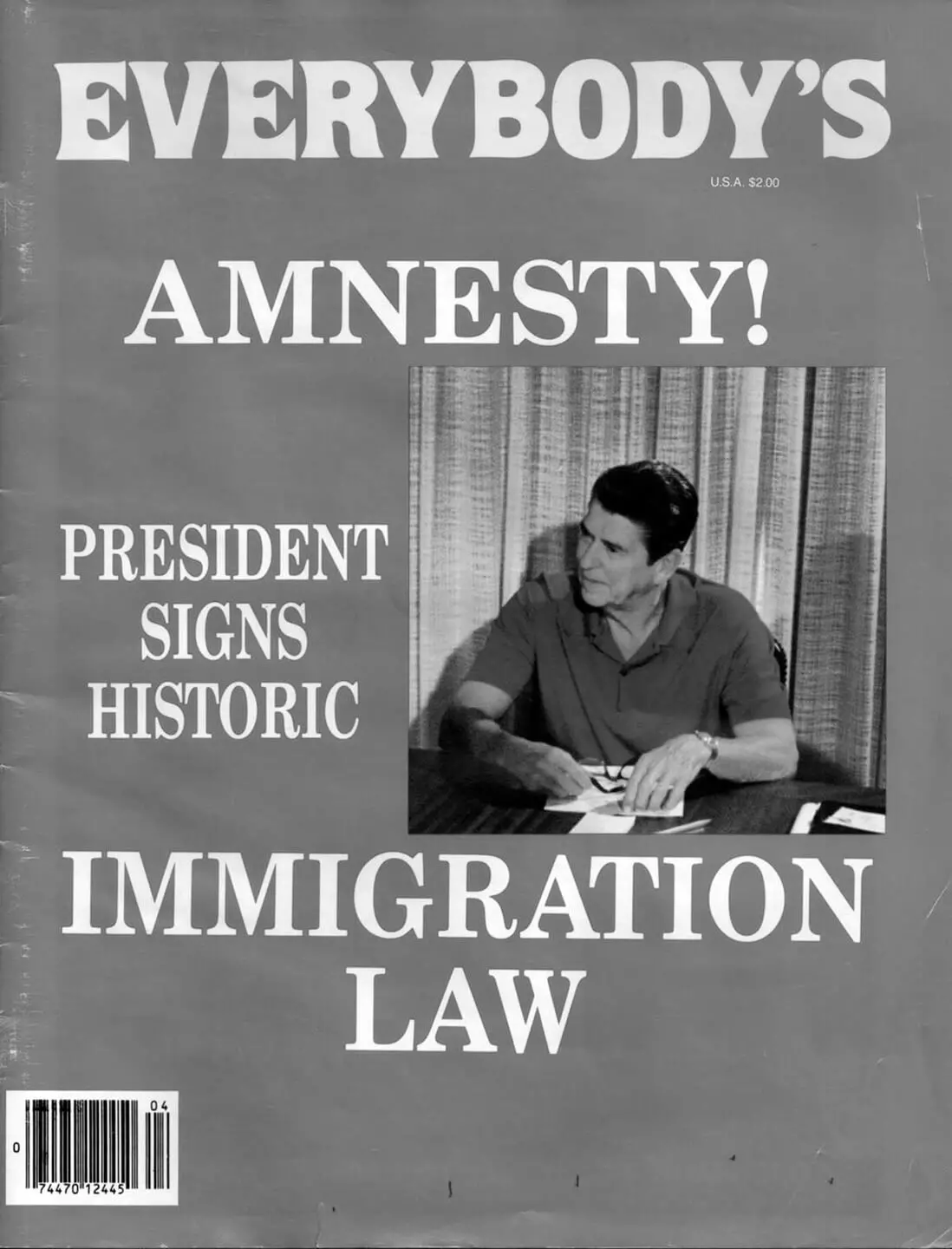
The Immigration Reform and Control Act, which requires employers to attest to their employees' immigration status, is signed into law by President Reagan.
The Act makes it illegal to knowingly hire or recruit illegal immigrants. It also begins the process to legalize immigrants that can prove they entered the United States before January 1, 1982.
-
1988
The U.S. government receives 1.4 million amnesty applications from individuals in the country illegally. An estimated 71 percent of the applicants entered the United States from Mexico.
-
1993
The “Don't Ask, Don't Tell” policy is instituted for the U.S. military, permitting gay men to serve, but banning homosexual activity. President Clinton's original intent was to revoke the prohibition of gay men in the military. In response to stiff opposition, Clinton’s compromise led to the discharge of thousands of men and women from the armed forces.
In response to President Clinton’s “Don’t Ask Don’t Tell,” over 800,000 protestors march on Washington, D.C. for lesbian and gay rights. The march raises awareness of rising hate crimes and ongoing discrimination against lesbians and gays.
-
2000
Vermont becomes the first state in the country to legally recognize civil unions between gay and lesbian couples. The law states that these “couples would be entitled to the same benefits, privileges, and responsibilities as spouses.” It stops short of referring to same-sex unions as marriage, which the state defined as heterosexual until September 2009.
-
2001
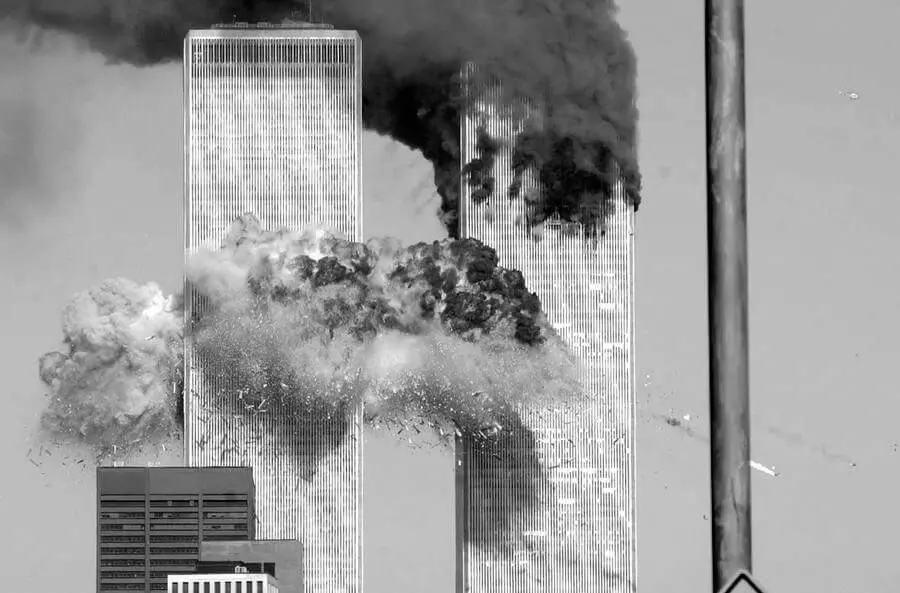
September 11 - Terrorists highjack four U. S. air flights.
At 8:46 a.m. American Airlines Flight 11 crashes into the North Tower of the World Trade Center in New York City. Fourteen minutes later United Airlines Flight 175 crashes into the south tower. Both towers collapse, killing a total of 2,764 people.
At 9:37 a.m. American Airlines Flight 77 crashes into the Pentagon in Washington D.C., killing 190 people.
At 10:03 a.m. United Flight 93, believed to be headed to a target in Washington, D.C., is crashed by its hijackers 80 miles southeast of Pittsburgh, Pennsylvania — a result of passenger attempts to stop the terrorists from reaching their intended target.
October 26 - Congress passes the Patriot Act in response to the terrorist attacks of September 11. The Act gives federal officials greater authority in tracking and intercepting communications, both for purposes of law enforcement and foreign intelligence gathering.
The American Civil Liberties Union takes issues with parts of the Act that violate the Fourth Amendment — namely, conducting a search without obtaining a warrant and showing probable cause that the person has committed or will commit a crime.
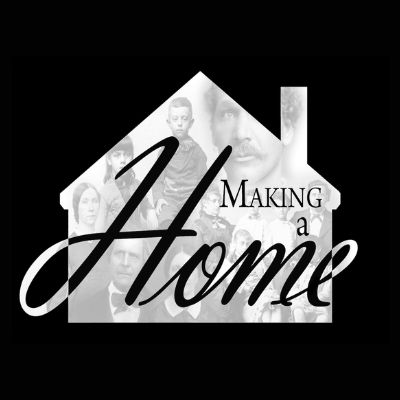 Making a Home
Making a Home
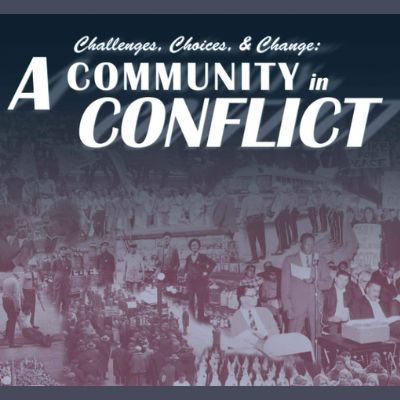 A Community in Conflict
A Community in Conflict
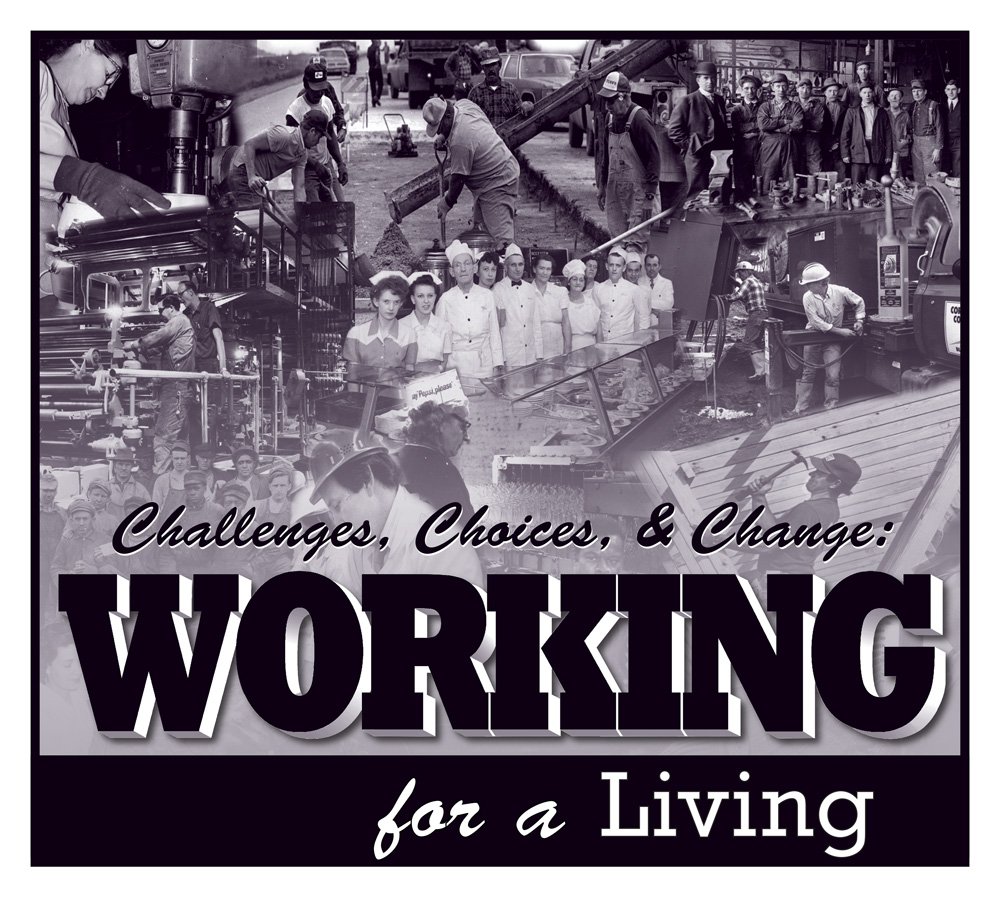 Working for a Living
Working for a Living
 Farming in the Great Corn Belt
Farming in the Great Corn Belt
 Abraham Lincoln in McLean County
Abraham Lincoln in McLean County